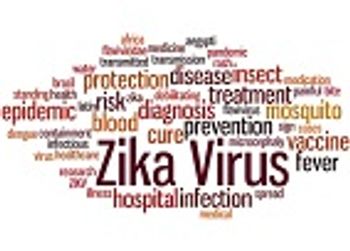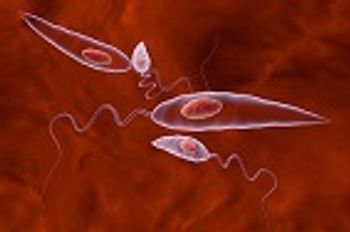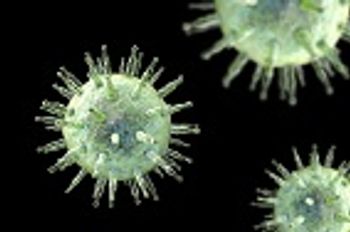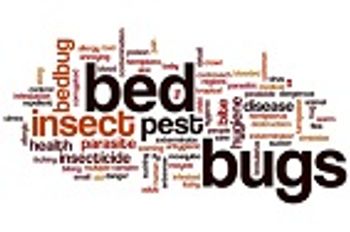
Fifteen countries continue to see 72% of all childhood deaths from pneumonia and diarrhea, the two biggest killers of children under five years of age worldwide, says a new global report.

Fifteen countries continue to see 72% of all childhood deaths from pneumonia and diarrhea, the two biggest killers of children under five years of age worldwide, says a new global report.

For a small group of individuals with immunodeficiencies, the MMR vaccine can be deadly.

New research out of the University of Pennsylvania on a DNA-based Zika virus vaccine is showing promising results.

Buyers clubs are still going strong in the United States and around the world as the offer a low-cost alternative for individuals with HIV and hepatitis c virus (HCV) who often find themselves struggling to pay for the expensive medications they need to treat their illness.

The US Food and Drug Administration (FDA) has published new research showing that the Zika virus is able to infect healthy neonatal mice.

Leishmaniasis infections in the United States are on the rise as US soldiers and ecotourists make their way home.

In a new study, researchers from the United Kingdom have found that cystic fibrosis patients are more likely to pick up multi-drug resistant infections in hospitals than was previously believed.

Researchers in the United Kingdom have made a new genetic discovery in the link between Epstein-Barr virus and related cancers, including a potential way to stop the cancer-causing effects of these infections.

A new study suggests that a homeopathic syrup may be an effective way to rid a child of bothersome cold symptoms.

Scientists from the National Institute of Allergy and Infectious Diseases have discovered a broadly neutralizing antibody that is able to neutralize 98% of HIV strains.

Researchers have found that the Zika virus is able to survive for at least eight hours on hard, non-porous surfaces.

The pharmaceutical giant, Bayer, began enrolling participants in a Phase III clinical trial in January 2016 with hopes to find appropriate dosing of Nifurtimoxin for children and newborns.

A tropical species of bed bugs has made a surprise appearance in Florida, according to a team of state entomologists, raising questions and concerns about a possible outbreak

As health officials investigate a recent outbreak of acute flaccid myelitis in Washington State, more cases of the rare condition have appeared in other Western states; questions about the cause remain unanswered.

York’s Lassonde School’s Micro and Nano-scale Transport (MNT) Lab researchers have discovered “DipTreat,” a water treatment device capable of detecting and removing E. coli from drinking water.

A recent analysis by the Centers for Disease Control and Prevention found that strides have been made in the fight against measles; however, the work still falls short of goals set by the World Health Assembly (WHA).

The National Institutes of Health (NIH) has led an international team of experts from multiple disciplines in putting together a series of articles on harnessing the power of "Big Data" to help with infectious disease surveillance.

European researchers have found that bacterial DNA molecules called plasmids are driving the evolution of antibiotic resistance in ways previously unknown.

Creutzfeldt-Jakob disease, a rare & fatal degenerative brain disorder, has been confirmed in a patient at Maine Medical Center.

A new potential case of the Ebola virus has been reported in Canada.

Emergency room providers are misdiagnosing too many patients with cellulitis, according to a new study, causing unnecessary hospitalizations and inappropriate antibiotic use.

Satellite images of nighttime lights can improve vaccination coverage in shifting populations.

A recent study finds that when it comes to mosquito-borne outbreaks, in this case, Chikungunya, infections originate around the home with women more likely to become infected than men.

The scope of multidrug-resistant tuberculosis in West Africa, until recently, has not been well-understood, but a new study on eight countries in the region shows that the superbug is more common than previous estimates suggested.

University of California and Stanford University researchers have identified how temperature and humidity work together to affect flu season.

A new study has found no correlation between receiving the Tdap vaccine during pregnancy and birth defects.

The growing number of HIV cases in Russia suggests that global eradication of the virus may not happen by 2030.

Recently, FDA reviewers met to discuss a new drug application submitted by Cempra Pharmaceuticals to treat community-acquired bacterial pneumonia.

A new study from the CDC and the Pew Charitable Trusts shows that 52% of patients are receiving the wrong antibiotics for their sinus infections, middle ear infections, and pharyngitis.

Predicting how long it takes for an infectious disease outbreak to begin may help health officials develop an early warning system, according to the authors of a new study on lag times in epidemics.